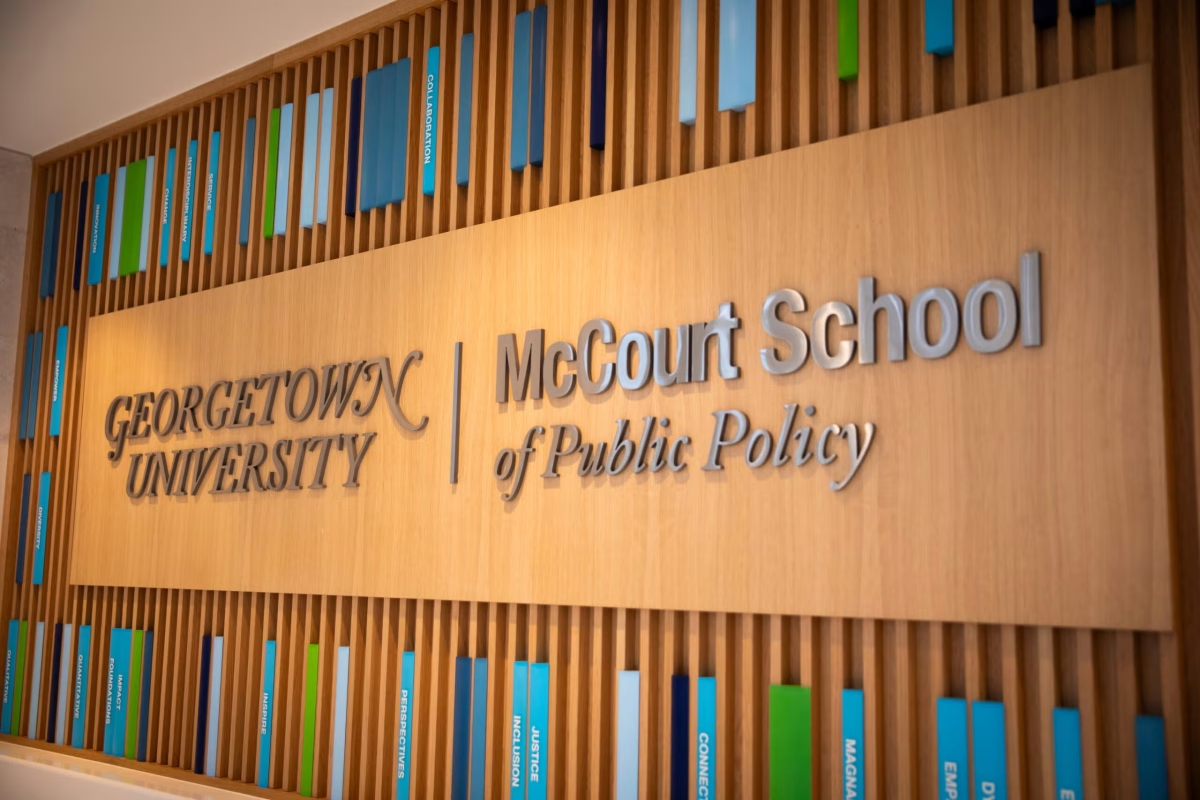Two interdisciplinary research hubs launched a new initiative aimed at increasing transparency in government debt at Georgetown University’s McCourt School of Public Policy Jan. 29.
The initiative, titled #PublicDebtIsPublic, seeks to establish the first centralized web-based database of government borrowing terms and provide accessible information on public debt. The Sovereign Debt Forum (SDF) and the Massive Data Institute (MDI) launched the project, which is supported by a grant from the Gates Foundation — a charity organization focused on global health, education and alleviating poverty — and is expected to enter its pilot phase ahead of a formal launch at DebtCon8, a global forum on sovereign debt, in October 2025.
Lisa Singh, director of MDI, said MDI ensures the information compiled through the initiative is both accessible and useful for policymakers, researchers and the public.
“MDI will lead the development of the technical infrastructure and work in partnership with the Sovereign Debt Forum to ensure that it is a valuable resource for researchers and the public,” Singh wrote to The Hoya. “Our mission at MDI is to develop methods and tools that improve the ability of researchers and the public to analyze data and use it as evidence to develop sound public policy and law.”
The initiative will also compile domestic laws and regulations that govern public borrowing as part of an effort to advocate for transparency and public access as the default standard.
MDI worked to plan and implement the initiative with SDF, a partnership between the Institute of International Economic Law at the Georgetown University Law Center (GULC) and the Centre for Commercial Law Studies at Queen Mary University of London to orchestrate interdisciplinary research on sovereign debt.
Anna Gelpern, co-director of SDF and professor of law and international finance at GULC, said the current lack of transparency surrounding public debt is concerning.
“We know more about the terms on which public companies borrow than governments,” Gelpern told The Hoya. “It is called public debt, and it is a promise of future efforts on behalf of the citizenry. So the idea that the citizenry not just does not know in real time the terms on which their efforts are being promised, but that there is no way to find out, just struck me as insane.”
Katherine Shen, an SDF fellow who leads research assistant recruiting and training for the initiative, said she enjoys the freedom to explore and develop within the project.
“My role involves managing the research assistants across Georgetown and Queen Mary and making sure that they are trained and their tasks are running so that we have a product at the conclusion of the Gates grant,” Shen told The Hoya. “I love the startup nature of it. I enjoy both making something run, but also thinking about ways to develop a new branch of an initiative that I very much believe in as well.”
Singh said she looked forward to deepening the partnership between MDI and SDF.
“This is an area of research that is new to me, so I have learned a great deal and am excited to use MDI’s expertise to build a scalable, adaptable platform that supports their research and the research of others around the world who study Sovereign Debt,” Singh wrote.
Singh added that the initiative has the potential to reshape how public debt is understood and monitored globally.
“The researchers and overall team at the Sovereign Debt Forum are trying to make public debt contracts available, searchable and accessible to the world,” Singh wrote. “This is necessary to change the way public debt accountability is discussed.”








